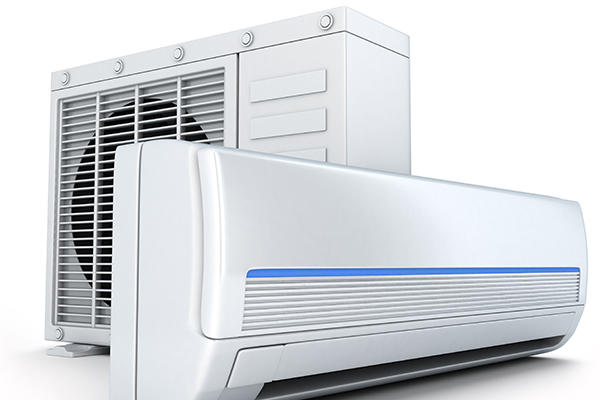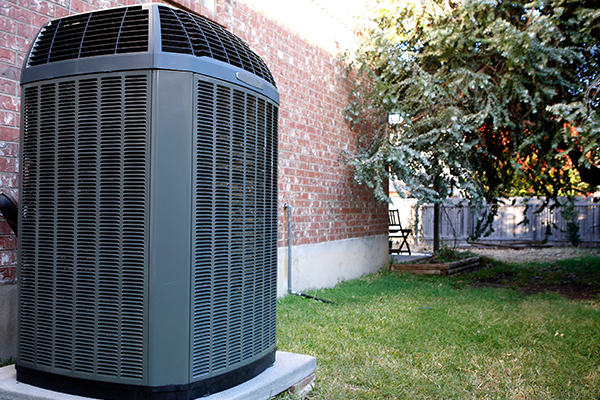
Avoid buying the wrong air conditioning system that can’t properly cool your property. Knowing what size air conditioner you need for your property will help you enjoy well-conditioned air through the hottest months of the year.
elearning-training.com gathered information about determining what size air conditioner you need to sufficiently maintain a comfortable and clean environment.
How Do I Calculate Air Conditioner Size for a Room?
To calculate the appropriate air conditioner size for a room, multiply the room’s length times its width; this will give you the area to be cooled. Then, multiply the area times 25 BTU. This equation allows for ample cooling, regardless of external weather conditions. Consider the following:
|
Property Length |
Property Width |
25 BTU |
Required A/C Output |
|
30 feet |
20 feet |
25 BTU |
15,000 BTU |
|
50 feet |
30 feet |
25 BTU |
37,500 BTU |
|
60 feet |
30 feet |
25 BTU |
45,000 BTU |
Tip: Adjust your calculations to account for high ceilings (over 8 feet) by multiplying the required output amount by 1.25 (25%).
What is BTU?
A fundamental measure of an air conditioner’s power is its British Thermal Unit (BTU) rating. BTUs are the energy exerted to increase or remove heat from a room. The more BTUs an A/C unit has, the better equipped it is to condition a larger space.
The three standard measurements of AC capacity are ton (tonnage), Watts, and BTU. Since all three measure the same thing, they can be compared or equated as:
• 1 Ton AC = 12,000 BTU = 3,500 Watts
Note: For perspective, one BTU is equivalent to the amount of heat required to increase the temperature of one pound of water by one degree Fahrenheit. The U.S. Energy Information Administration (EIA) uses BTU as a unit of energy content.
Can you Oversize an A/C Unit?
Yes. An oversized HVAC unit can make your home’s inside temperature uneven and uncomfortable. An HVAC system with excess capacity can heat or cool your home more rapidly, but that speed will often result in a couple of troubling issues.
First, your property won’t benefit from gradual, even heating or cooling. As a result, you will be left with a number of hot or cold spots throughout the space.
Second, in cooling mode, an appropriately sized HVAC system will dehumidify the air as it cools. An oversized system usually doesn’t run long enough for the dehumidification process to efficiently take place.
Note: Unfortunately, many property owners end up with an HVAC system that’s too powerful for their property to accommodate.
Determining Air Conditioning Requirements

To properly match a structure’s new HVAC system with its estimated heating and cooling needs, HVAC contractors must not only calculate the square footage of your home’s total space but also consider a broad range of factors, including:
The space’s cubic footage – This measurement accounts for structures with taller ceilings.
Type of Space – A room’s purpose (kitchen, fitness center, office, etc.) will significantly affect any decision about the A/C size you require.
Current ductwork design – Duct size and location play a fundamental role in conditioning your structure’s space.
Window quantity, position, and quality – Windows are often responsible for an HVAC unit’s difficulty in properly cooling or heating a space.
The structure’s insulation – A properly insulated building will retain its internal air temperature more efficiently.
Average occupancy – The more people that occupy a space, the more challenging it will be to cool or heat the air.
Lighting – Inefficient lighting fixtures can generate sufficient heat to significantly increase your space’s temperature.
Heat-producing equipment and activities – Many appliances can generate tremendous amounts of heat, requiring a more powerful air conditioning unit. Such appliances may include:
- Stoves/Ovens
- Furnaces
- Water Heaters
- Dishwashers
- Refrigerators
- Vending Machines
- Televisions/Entertainment Units
Tip: With so many crucial factors to consider, it is highly recommended to hire a professional HVAC technician to thoroughly evaluate your space, calculate its A/C requirements, and recommend an appropriate A/C size and model.
Selecting the Right Air Conditioning Size
In this article, you discovered how to calculate your property’s air conditioning requirements, which factors influence your property’s A/C needs, and how over-estimating an A/C’s output can leave you with irregular air conditioning.
Knowing how to accurately calculate the appropriately sized air conditioning unit for your property will help you maintain a comfortable atmosphere, efficiently cool or heat your space, and save significant money on A/C operating costs.
Oversizing your air conditioning unit can result in uneven cooling and high internal humidity, while underestimating the proper size can leave your air conditioner struggling and expenses skyrocketing.
Sources:
eia.gov/energyexplained/units-and-calculators/british-thermal-units.php
energy.gov/sites/prod/files/guide_to_home_heating_cooling.pdf
nrel.gov/docs/fy02osti/31318.pdf